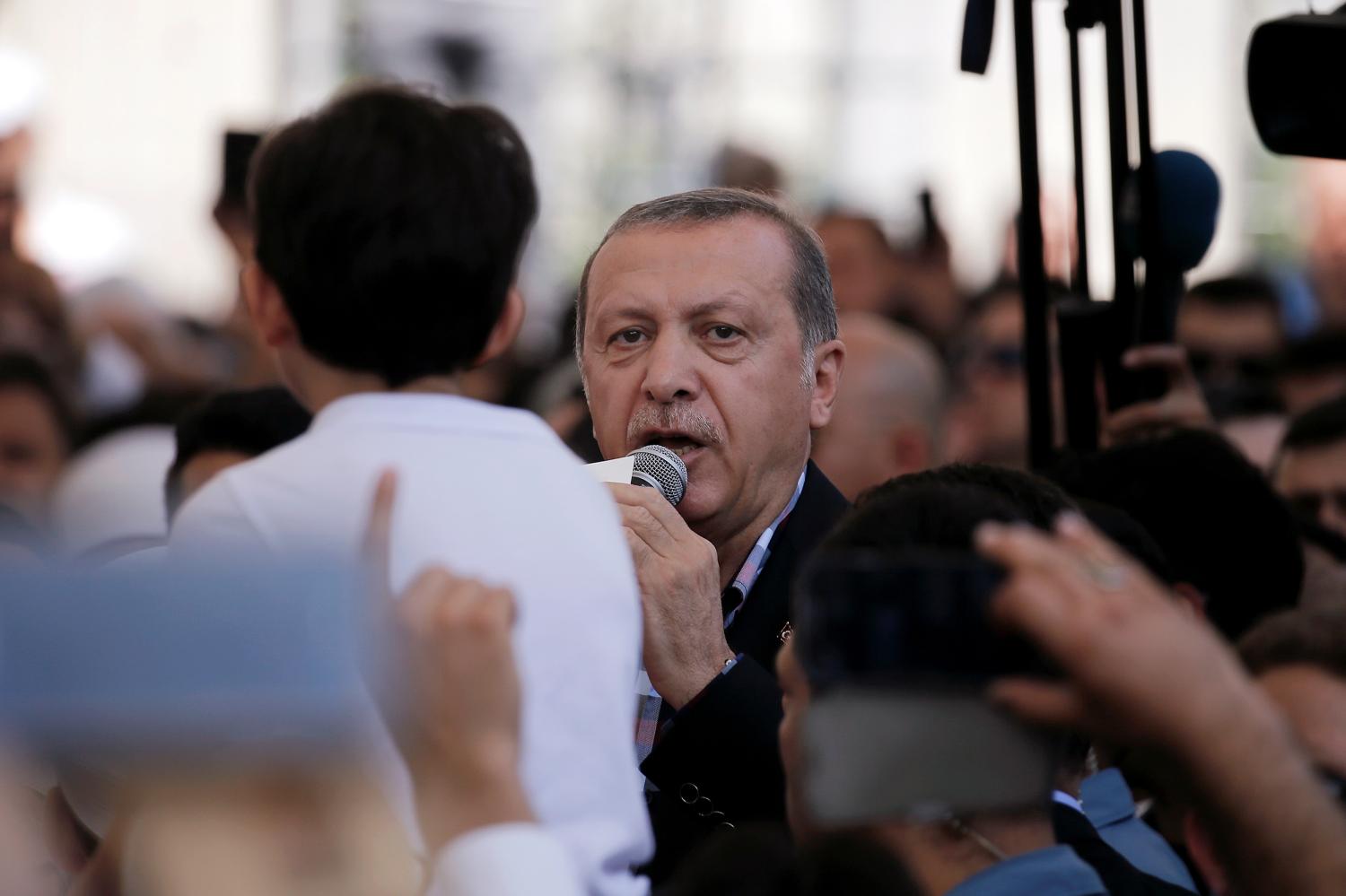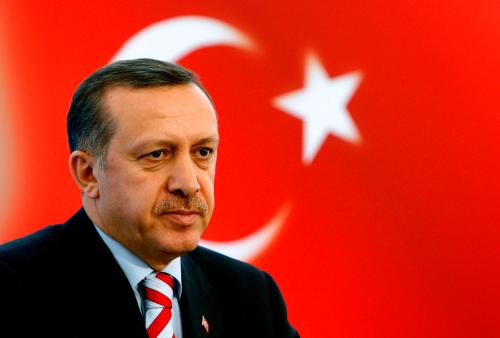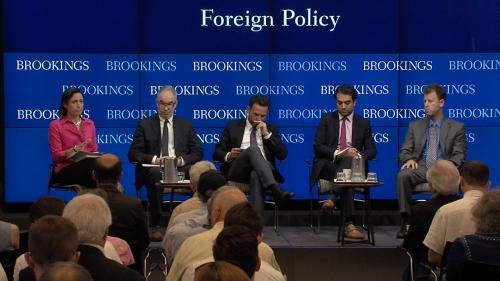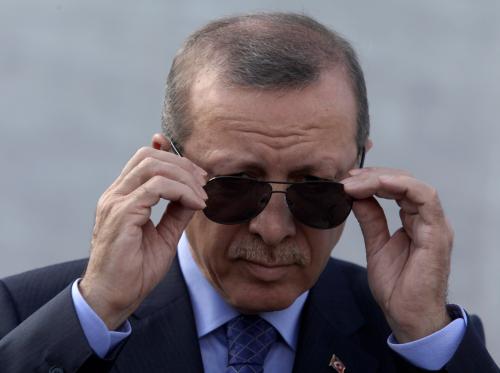Editors’ Note: Whatever one thinks of Erdoğan, there is little doubt: As tenuous as Turkey’s future remains, a disaster—one that would have had ripple effects across the region—was averted last week, writes Shadi Hamid. Here, he makes sense of the coup and why it failed, drawing out a few key lessons. This post originally appeared in Newsweek Middle East.
On a Friday night, just a day after a horrific attack in Nice, France, that had taken the lives of more than 80, rumors of a military coup in Turkey began to spread.
It was a reminder that even the most unlikely things can happen in a Middle East that tends to follow the maxim “if it can get worse, it probably will.” Nearly everyone, including senior U.S. officials, were caught by surprise. Political scientist Jay Ulfelder had put the probability of a Turkish coup attempt in 2016 at a mere 2.5 percent.
For all of the ruling AK Party’s faults and President Recep Tayyip Erdoğan’s intensifying paranoia and authoritarian tendencies, perhaps the most consequential victory the party could claim was the neutralization of Turkey’s powerful military, which long considered itself the guardian of Turkish secularism. The army had been responsible for a steady succession of coups. The first, in 1960, where a democratically elected prime minister was hung to death was never too far from Erdoğan’s mind, despite the passing of more than five decades. But it had seemed that after 14 years of AKP rule, Turkey had finally moved beyond its own dark history of military intervention. But it hadn’t.
Coups introduce a dynamic where there can only be one winner. Coup plotters, once they make their decision to act, have an incentive to fight (and kill) to the very end, since failure usually entails a harsh prison sentence, or worse. In countries already wracked by existential, winner-takes-all politics and deep social polarization, coups, especially if they succeed, are likely to provoke ongoing bloodshed and civil conflict. Whatever one thinks of Erdoğan, there is little doubt: As tenuous as Turkey’s future remains, a disaster—one that would have had ripple effects across the region—was averted.
In making sense of the coup and why it failed, there are a few key lessons. One has to do with the importance of norms. Despite a long history of military intervention, norms against coups have entrenched themselves in recent years, including, most importantly, among secular parties; among these are groups that have a pronounced dislike of Erdoğan. This norm shift happened quickly. As recently as 2008, Turkey’s Constitutional Court was just one vote away from shuttering the AKP for “anti-secular activities.” The idea that disputes, however intense, must be resolved through legal, democratic means has spread and deepened, cutting across societal and ideological divides.
The country’s last successful coup was in 1997, when the military forced the resignation of an Islamist-led coalition government. The Islamists of the Welfare Party, an AKP predecessor, were unable or unwilling to take to the streets en masse, allowing the army to quickly impose itself. This time around, however, Erdoğan and other AKP leaders immediately called on their supporters to mobilize throughout the country and resist the army’s moves.
For me, Friday night was a frightening moment, presenting a key test for an international community that has had a checkered record of (not) opposing coups against deeply flawed but still democratically-elected Islamists. As I watched the coup attempt unfolding in real time, I was reminded of the sick feeling I had on July 3, 2013, the day the Egyptian military overthrew President Mohamed Morsi of the Muslim Brotherhood. We have the benefit of knowing how the coup turned out there, producing a brutal outcome responsible for the worst mass killing in modern Egyptian history, according to Human Rights Watch.
Of course, that Turkey didn’t follow in Egypt’s footsteps does not mean that the country is in the clear. In 2015, I conducted extensive interviews with current and former AKP figures for my new book on the “problem” of Islam and politics. While the coup attempt cannot be reduced a simple Islamist-secular divide, the aftermath of the coup—with Erdoğan moving aggressively to crack down on both actual and potential opponents—is likely to exacerbate ideological divisions over the role of religion in Turkish society.
With the other Islamist groups I’ve studied, including the Egyptian and Jordanian Muslim Brotherhoods, there was always at the least the pretense of sounding conciliatory. Not so much in Turkey, where some of the AKP figures I interviewed openly expressed a raw, bitterness toward their secular opponents. For them, after all, it was quite personal. Most lived through the 1997 coup and the so-called “February 28 process” which aimed to deal a decisive blow against the broader Islamic movement in every facet of public life, particularly in the educational sphere, with the shutting down of imam hatip religious schools.
A senior advisor to former Prime Minister Ahmet Davutoglu told me that Turkey’s normalization required “carrying Ataturk to his grave,” referring to the still revered founder of modern Turkey and the architect of decades of forced secularization. For this advisor, the scars hadn’t gone away. He was still furious that his wife, because she wore a headscarf, wasn’t able to work at a state hospital until 2014, despite the fact that, by then, the AKP had been in power for 12 years.
In short, Turkey has a long way to go, considering that questions over Islam, identity, and the very meaning of what it means to be both Turkish and Muslim remain unresolved. But, at least for a moment, observers can take some solace in the fact that, as bad as it still might be, it could have been worse—perhaps much worse.
The Brookings Institution is committed to quality, independence, and impact.
We are supported by a diverse array of funders. In line with our values and policies, each Brookings publication represents the sole views of its author(s).








Commentary
In Turkey, putsched out
July 22, 2016